Editor's note:
Fifty years after the country’s reunification, Ho Chi Minh City has transformed itself into the most dynamic economic center in the country. Here, the flow of innovation is constantly penetrating every field - from infrastructure, technology to the way people live, work and connect with the world.
However, rapid development also brings with it difficult-to-solve problems: population pressure, overloaded infrastructure, climate change, development gap between inner cities and suburbs...
In the context that the Party and State are implementing many major policies to create new positions and strengths for the country, Ho Chi Minh City - as a locomotive - also needs to quickly "solve" its own problems with a long-term, comprehensive and practical vision.
VietNamNet introduces the series of articles “HCMC: Removing bottlenecks to reach out in the future” . This is a collection of proposals and strategic advice from experts who have worked for many years in developed countries, have a global perspective but are always concerned about the future of the city. All share the same desire: HCMC will become a smart, livable city, in harmony with nature, with its own identity in the flow of globalization.
In 1965, South Korea's GDP per capita was $106. At that time, Vietnam's GDP per capita was similar to South Korea's, and perhaps even higher.
By 2022, Vietnam will reach a GDP per capita of 4,116 USD, while this figure in Korea is 32,394 USD.
Many experts believe that in order to have such a remarkable development, Korea has been very serious about attracting talent back to the country, especially to develop industries such as semiconductors and electronics, since 40 years ago.
Vietnam in general and Ho Chi Minh City in particular, as the economic "locomotive" of the whole country, should do what to solve this problem in the coming years, especially when the city will be expanded in terms of scale, population and economic space?
VietNamNet talked with AVSE experts - who have worked for many years in countries around the world - to hear their concerns, barriers and wishes about the familiar story - returning to contribute.
Dr. Huynh Dat Vu Khoa: Invitations must come with a long-term vision
After graduating from Ho Chi Minh City University of Technology, Dr. Huynh Dat Vu Khoa went abroad to study and work for 25 years. Currently, he works at the Norwegian Geotechnical Institute, specializing in construction stability, regularly working on energy projects (wind power, oil and gas, etc.). As a son of Saigon, Mr. Khoa was born, raised and studied in his hometown for the first 23 years of his life, but this time is not as long as the time he has studied and lived abroad up to now.
Dr. Khoa said he had received an invitation to work in Vietnam, even a big opportunity in the field of marine energy and renewable energy. But after consideration, he is currently still in Norway. 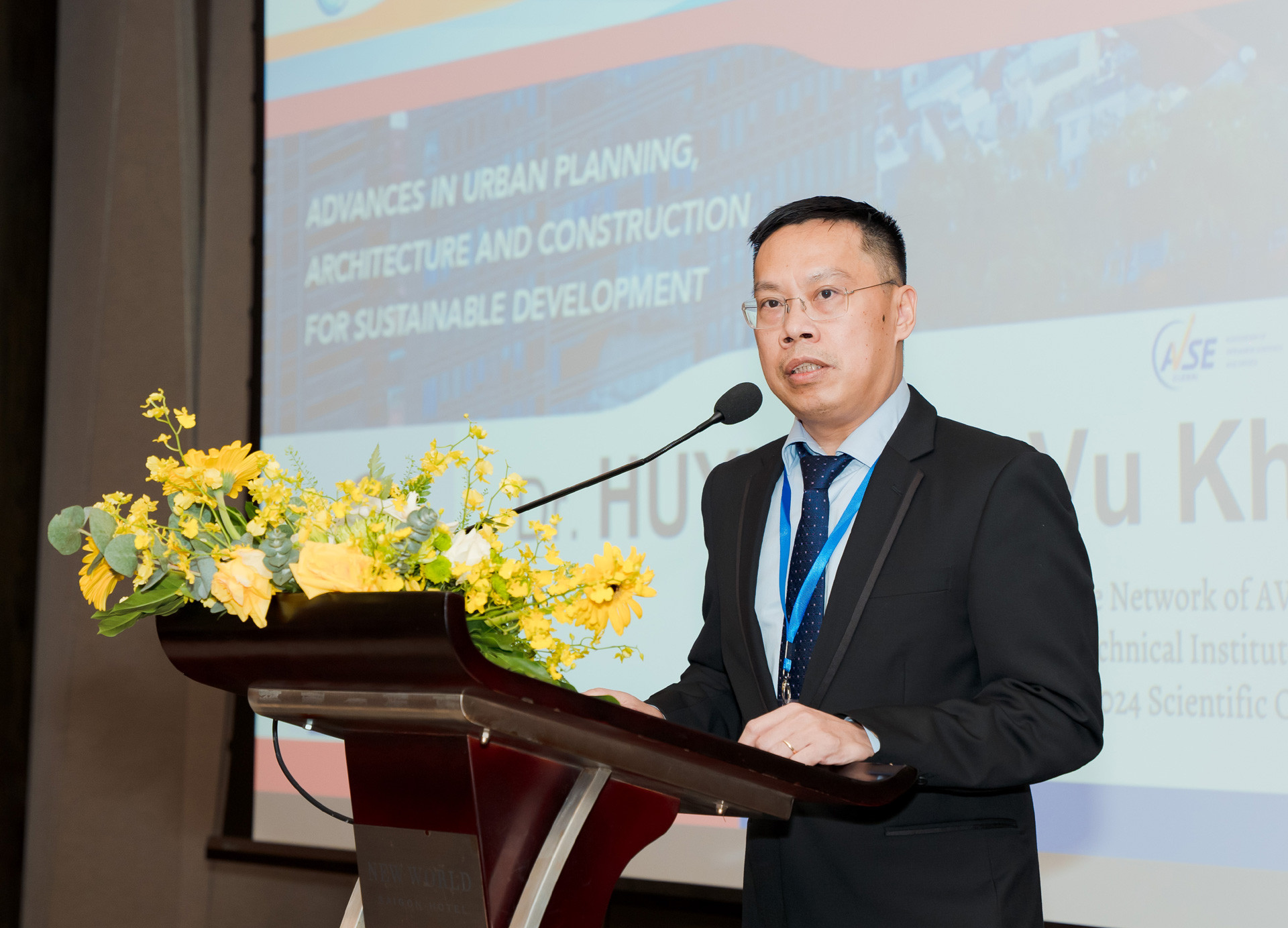
Dr. Huynh Dat Vu Khoa is working at the Norwegian Geotechnical Institute. Photo: NVCC
According to this doctor, to attract talented people to return to work in the country, four factors are needed.
" First, we need a professional, competitive and innovative working environment. There are many talented Vietnamese people working in high-tech, financial, technological environments... They need an ecosystem that can integrate innovation to promote their capacity.
After expansion, Ho Chi Minh City will have high-tech zones, startup zones of a megacity, and will develop energy and logistics industries. These are the factors that the city can take advantage of to attract and build an ideal working environment for talented people.
Second, a very important factor when returning is “empowerment”. They must be able to participate in projects that they want to support and have a say in the process. This is not an easy thing to do. The working environments in European countries that I have experienced do this very well.
The third factor is quality of life, specifically a clean, safe living environment with minimal amenities and limited pollution levels (if any)...
Finally, there are preferential policies and support for legal and administrative procedures. It is best to minimize obstacles in administrative procedures," said Mr. Khoa.
The doctor said that many people often mention treatment and salary when attracting talents back to the country. But according to him, that is an important issue but not a prerequisite.
For him, the treatment is not just limited in numbers but also broader: the opportunity to develop his career, access important projects with great influence that he expects.
"Most importantly, when domestic units send invitations to return, think about the long-term problem, especially for those who have families and relatively stable lives abroad.
The long-term future of that job and position will influence their decision. They want to see a clear commitment from the government and businesses on how to use human resources to solve big problems according to their expectations, instead of just formal, short-term invitations for a few years," Mr. Khoa emphasized.
Dr. Dinh Thanh Huong: Respect the ego of talented people
Dr. Dinh Thanh Huong is the Executive Director of Knowledge and Projects of AVSE Global. She believes that the problem of attracting talent in Ho Chi Minh City is also the problem of the nation. The concerns of the nation are also the concerns of the city. The major policies of the nation are also the major policies that Ho Chi Minh City needs.
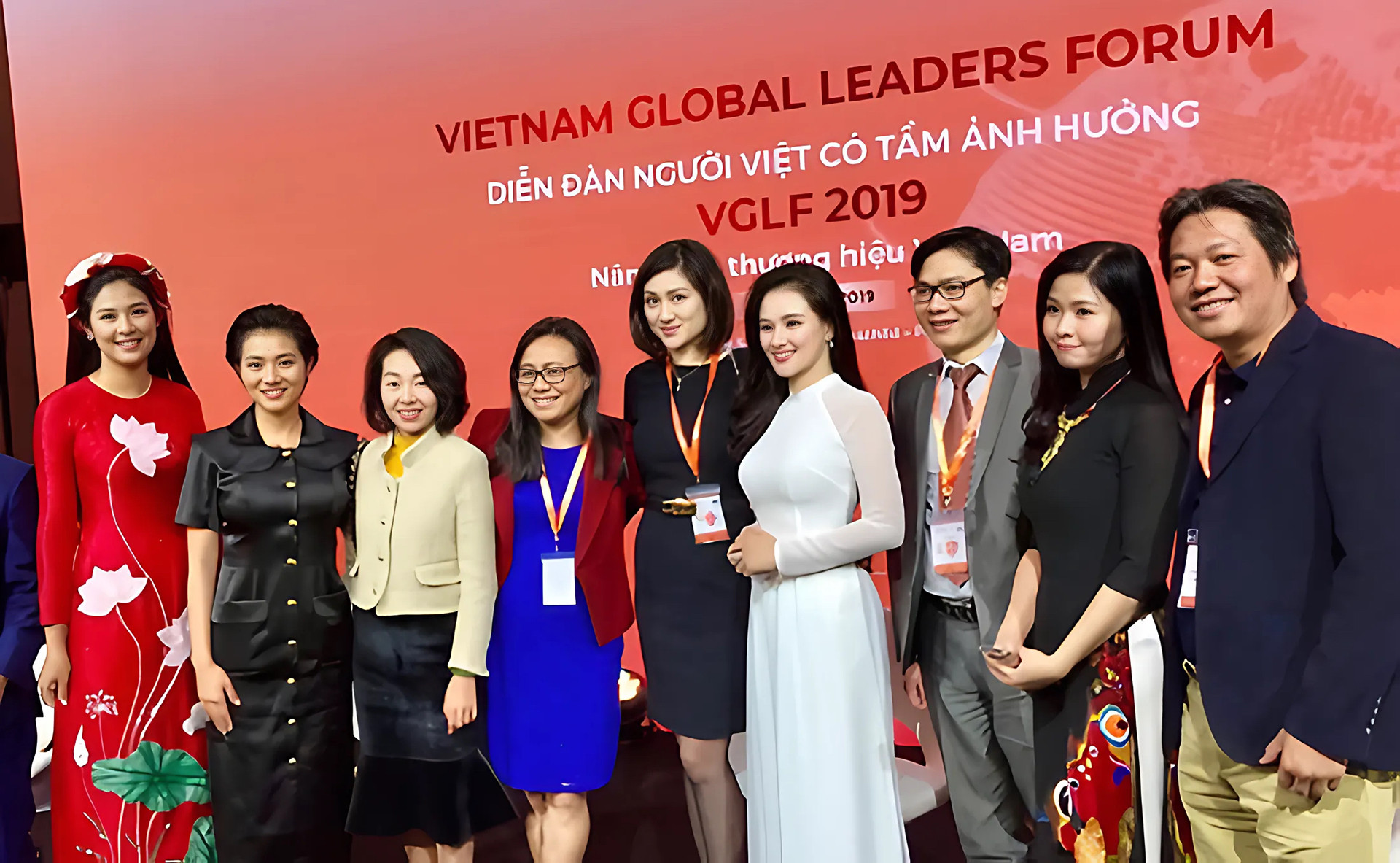
The Influential Vietnamese Forum is an event initiated and developed by AVSE. Photo: AVSE
Regarding treatment, Ms. Huong thinks that it is possible to divide into different groups. She knows that there are high-level scientists who really do not need to worry about finances when they return, and they can even bring a lot of money back.
But there are younger people who are still in the development stage of their careers. They need to be paid a certain level of finance.
Therefore, according to Dr. Huong, in addition to the factors that Dr. Huynh Dat Vu Khoa mentioned above, try to "attract talents back with national pride and patriotism". That is the method that many countries such as Korea and Israel have successfully applied.
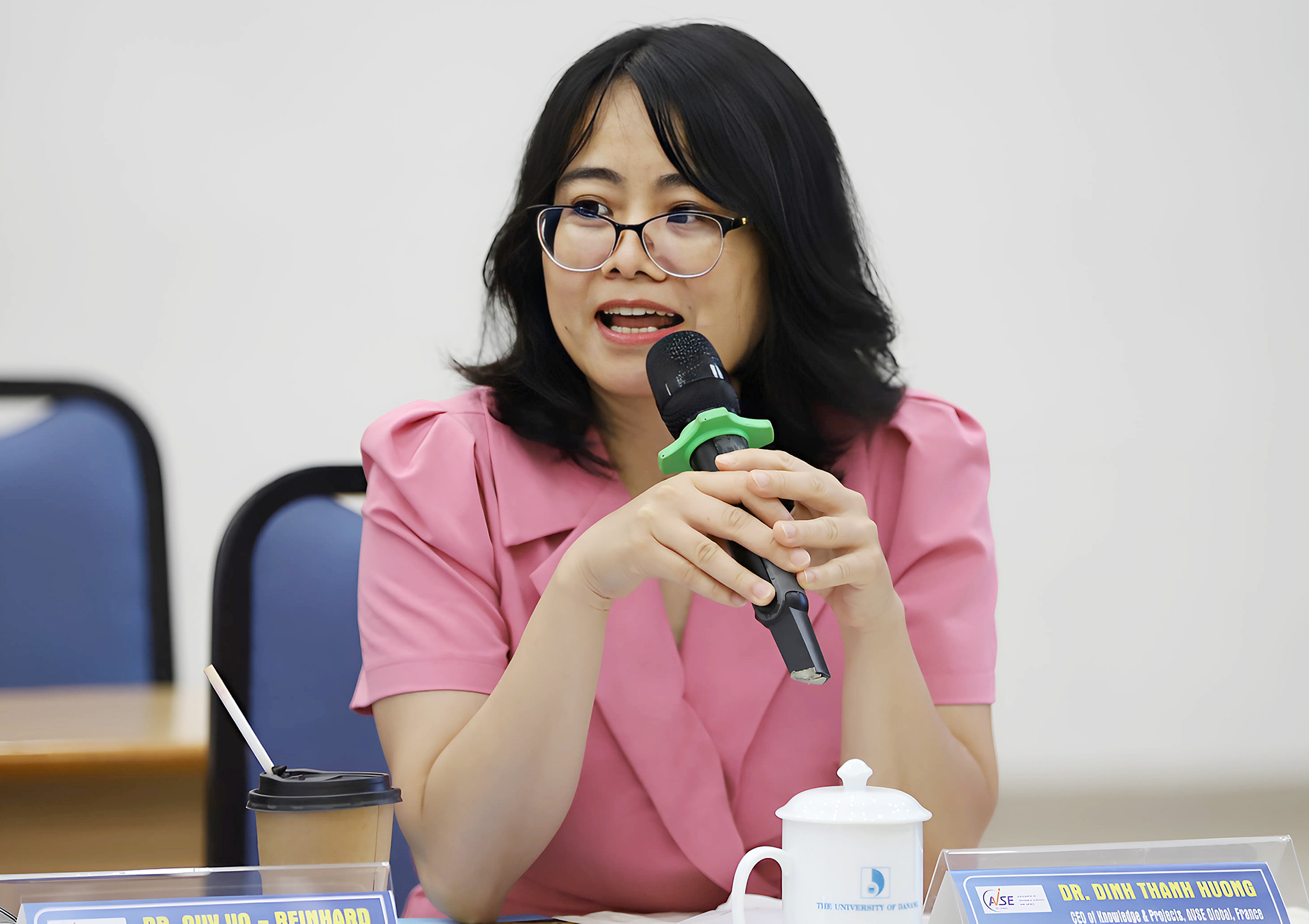
Dr. Dinh Thanh Huong believes that "respecting the ego of experts" is an important factor in attracting and retaining talented people. Photo: Danang University
The female doctor also paid special attention to "respecting the ego of experts".
The ego, according to her, can be understood in three aspects.
" First, there are scientists who come up with very new ideas that no one has ever heard of and no one has ever 'felt'. So, first of all, we must give them a mechanism to try. Their opinions need to be respected even if no one has imagined them. They need a corridor to continue to develop. Their ego is the ego of ideas.
Second, we often talk about corporate culture. In Vietnam, there must be certain ways of relating, otherwise it will be very difficult to develop normally… We often say that, but in reality, Vietnam is changing a lot.
For people who return from abroad, sometimes they have different personalities. They do not fully understand the rules and behaviors of the Vietnamese people.
They may have been born and raised in Vietnam, but after living abroad for many years, they are no longer used to it and have international thoughts and behaviors. So, instead of judging those differences, let's be open to them, as long as we share the same development goals," Ms. Huong analyzed.
The third “self” that Dr. Huong wants to talk about is recognizing contributions at the individual level.
“It is true that we work based on collective intelligence. There are works that will later become the property of the State or a certain agency, but openly honoring individuals and recognizing their contributions and efforts is a way to express and elevate the ego of scientists and high-level experts,” she suggested.
Ms. Tran Tue Tri: Talents returning home also need to be 'flexible'
Ms. Tran Tue Tri is the co-founder and senior advisor of Vietnam Brand Purpose. She is also one of the Vietnamese personnel who has held many senior management positions at multinational corporations such as Unilever, Samsung, P&G... After 15 years of living and working in the Philippines, Thailand, Singapore, she returned to Vietnam with many experiences and enthusiasm.
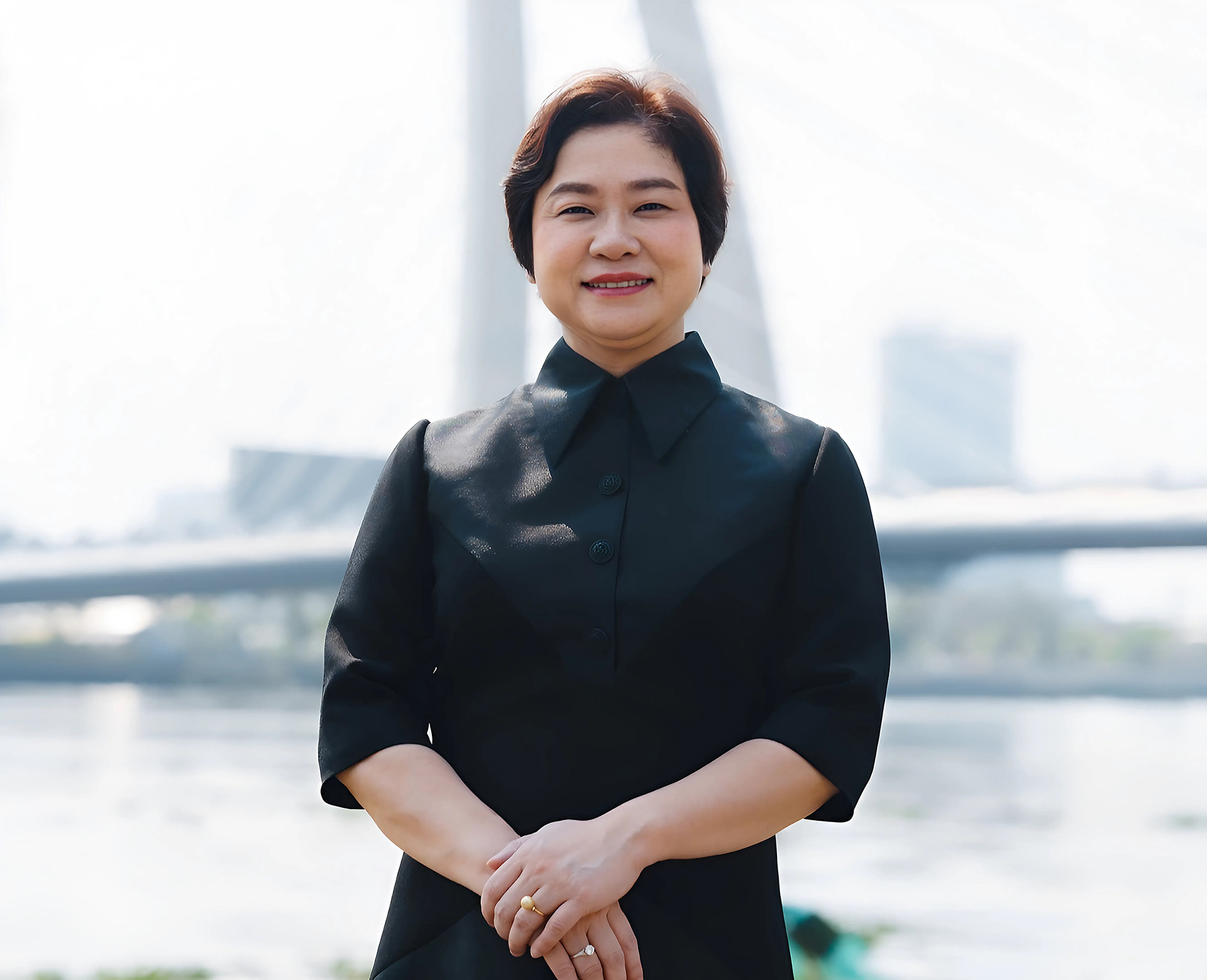
"Returnees also need to be flexible, adaptable and have a spirit of integration," said Ms. Tri. Photo: NVCC
According to Ms. Tri, attracting talent back home is not a simple problem. Although Ho Chi Minh City has implemented many attraction programs, the results have not been high.
"Salary is an issue, but it's not everything. The issue is cultural integration," she emphasized.
Taking China as an example, Ms. Tri said the program to attract 1,000 talents three decades ago laid the foundation for the country's rise in fields such as science and technology. They not only attracted Chinese people from the US and Europe to return home but also foreigners to work there.
What is special about China’s approach is its flexibility: talented people, especially professors, do not necessarily have to return immediately, but can participate in short-term projects. This allows talented people to maintain their jobs in their home country while contributing to the country.
"At first, you should follow the project to see if it's suitable and if you can integrate. That's much more important than being forced to return home," she said.
Ms. Tri also proposed encouraging private enterprises to participate in attracting talent instead of just stopping at the public sector.
"The private economy should have new, more positive policies to attract talent," Ms. Tri noted.
She also warned about the wrong mentality of equating the value of talent: "Not everyone who returns from abroad is good. The problem is what they learn and what they can do. If this issue is not clear, it will create injustice such as domestic personnel contributing a lot but getting lower salaries than those returning from abroad.
On the contrary, those who return also need to be flexible, adaptable and have an integrated spirit. Do not bring the same way of working from other places back to Vietnam. Choose good things that are suitable for Vietnamese culture to contribute, not to return with the mentality of being admired."
"I came back to Vietnam from Singapore and saw many differences. But I have to determine which things are good to keep and which things are suitable to bring in. I cannot demand that the domestic environment be the same as the other side, and I cannot bring the exact way of working of the other side back to the country.
We have to start by seeing the good things in Vietnam, then bring our good things to make the organization better. Don't think that Vietnam is all bad, only the other side is good. That is completely wrong.
By doing so, the people inside also feel that they are understood, and that they are here to create value, not to prove anything. The ultimate goal is to create value together," she shared.
On the contrary, according to Ms. Tri, the person inside must also understand why the others are here and determine the spirit of learning, opening up to learn instead of closing it.
“That is very important and is a matter of human resource management and corporate culture,” Ms. Tri affirmed.
Human quality is the core factor of sustainable growth. Ho Chi Minh City owns Ho Chi Minh City National University, more than 100 colleges and universities, prestigious international schools, high-tech zones, leading hospitals, and abundant human resources.
Cities need to build "knowledge cities" like One North in Singapore and Oxford City in the UK. This is a model that combines universities, government, businesses, startups, and highly qualified people to form Innovation Hubs.
Training, attracting, and retaining talent takes place in a university environment linked to the market, the city, and the community. With its current strengths, Ho Chi Minh City can establish “University City” (university - science - innovation urban area) and “Medical Village” (international medical tourism) as pillars in the knowledge space.
Dr. Bui Man, Senior Engineer, Director of GTC Soil Analysis Services Laboratory, Dubai (United Arab Emirates)
Vietnamnet.vn
Source: https://vietnamnet.vn/chuyen-gia-viet-khap-the-gioi-tiet-lo-bi-quyet-de-tphcm-keo-nhan-tai-ve-nuoc-2390263.html


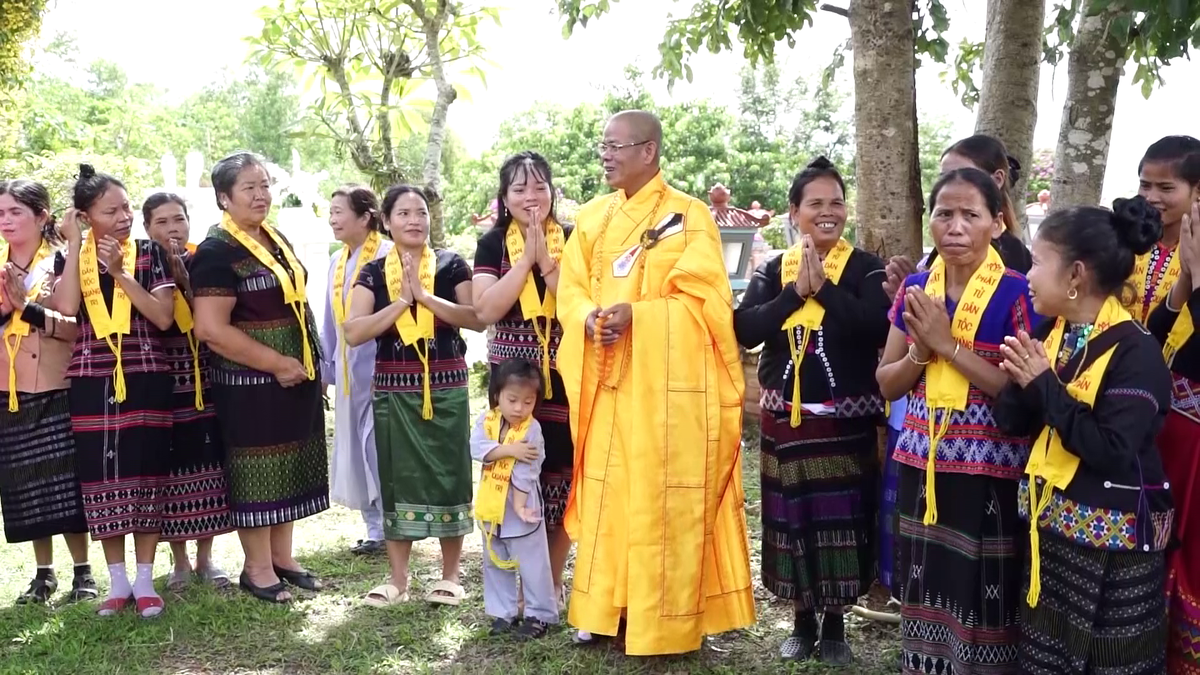
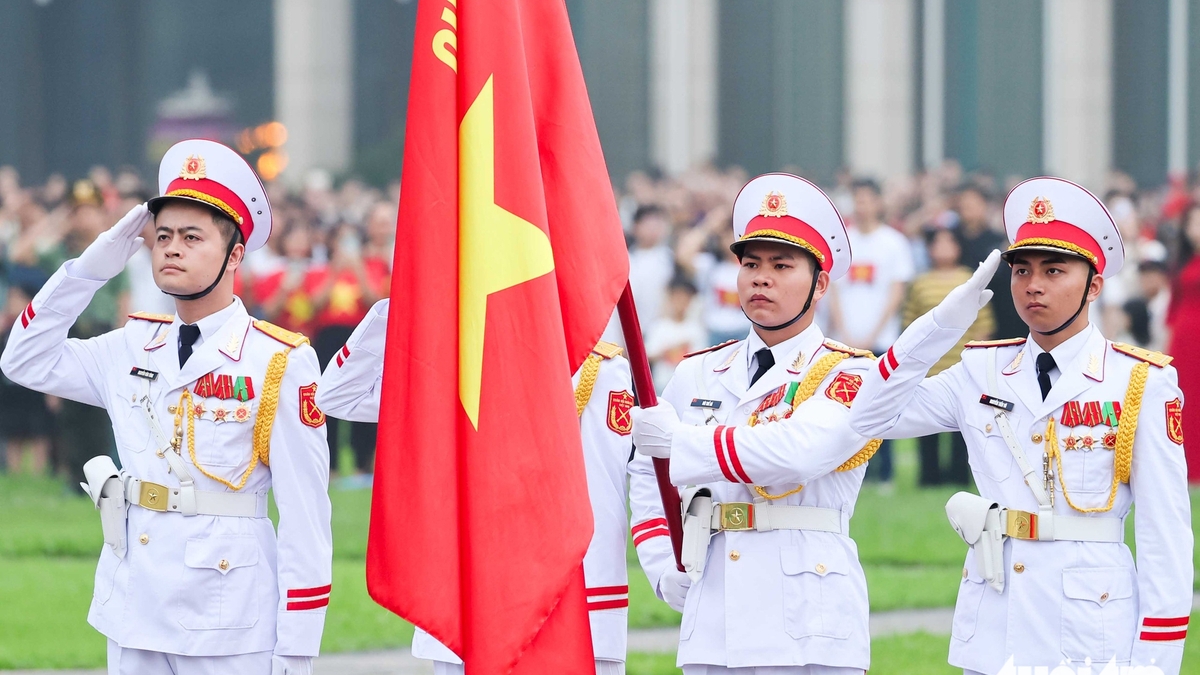

![[Photo] Flag-raising ceremony to celebrate the 50th anniversary of the Liberation of the South and National Reunification Day](https://vphoto.vietnam.vn/thumb/1200x675/vietnam/resource/IMAGE/2025/4/30/175646f225ff40b7ad24aa6c1517e378)

![[Photo] General Secretary To Lam presents the title "Hero of Labor" to the Party Committee, Government and People of Ho Chi Minh City](https://vphoto.vietnam.vn/thumb/1200x675/vietnam/resource/IMAGE/2025/4/30/08a5b9005f644bf993ceafe46583c092)



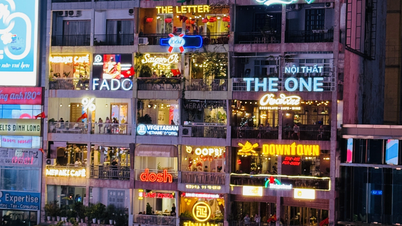


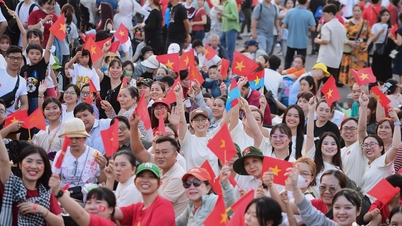
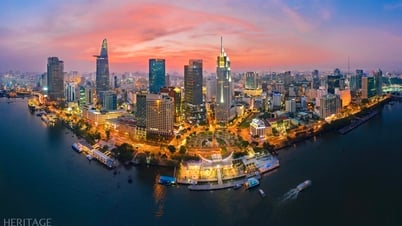






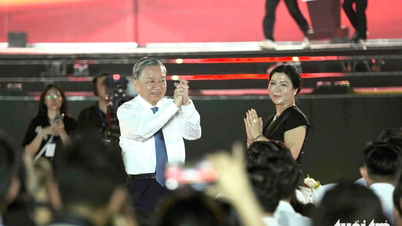




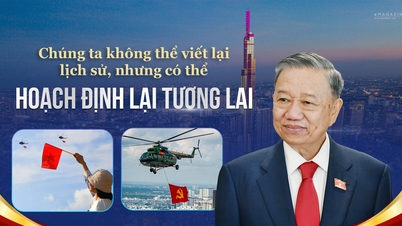
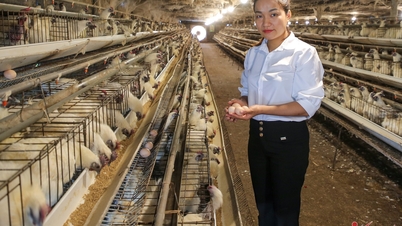
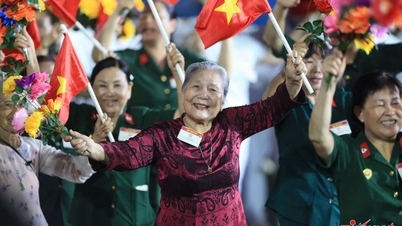

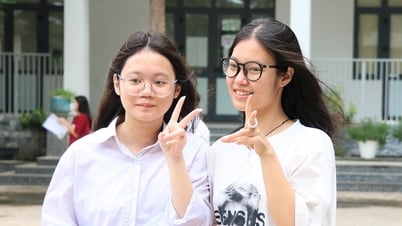


![[Photo] Demonstration aircraft and helicopters flying the Party flag and the national flag took off from Bien Hoa airport](https://vphoto.vietnam.vn/thumb/1200x675/vietnam/resource/IMAGE/2025/4/30/b3b28c18f9a7424f9e2b87b0ad581d05)












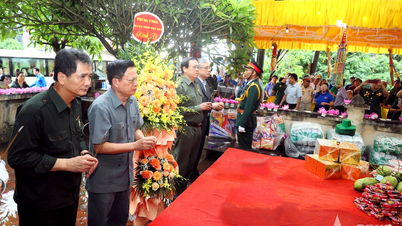
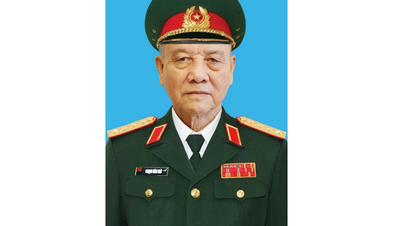

















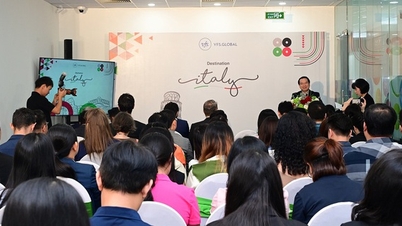

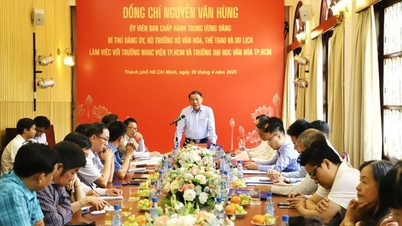
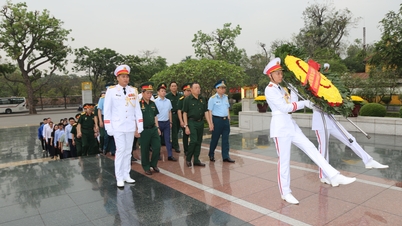

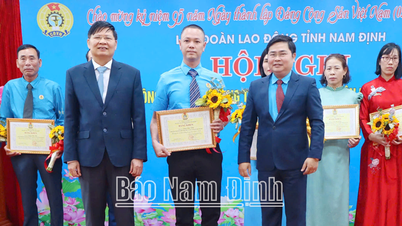

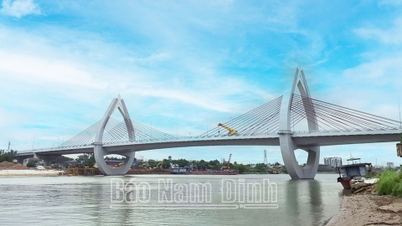




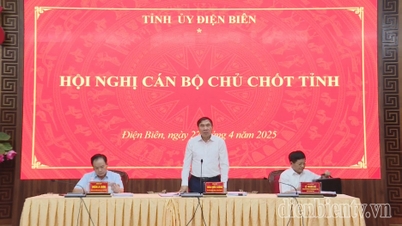

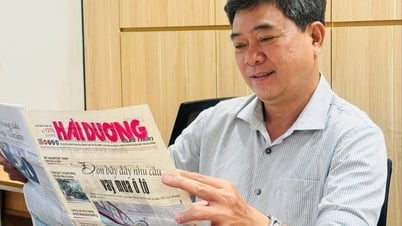













Comment (0)